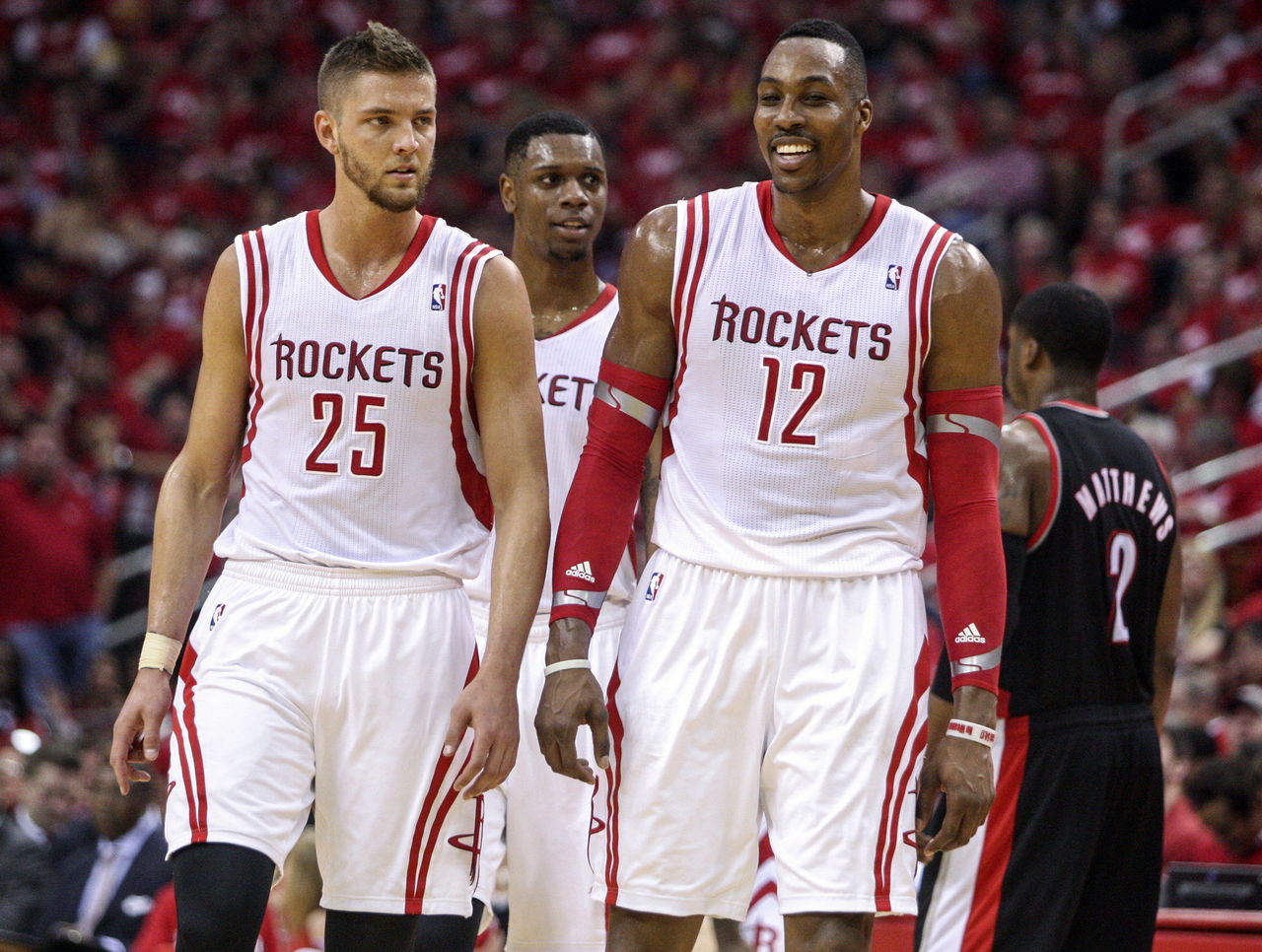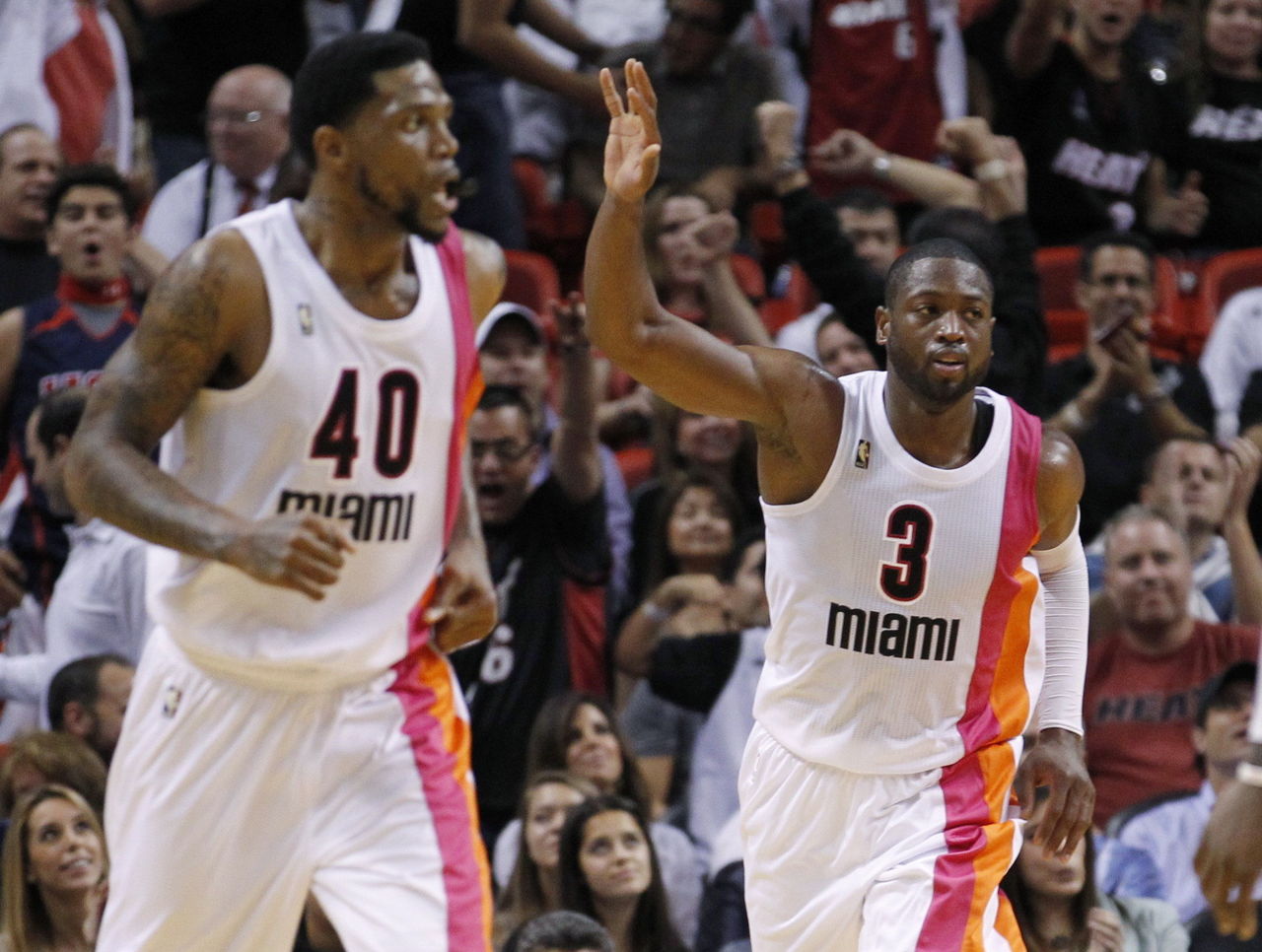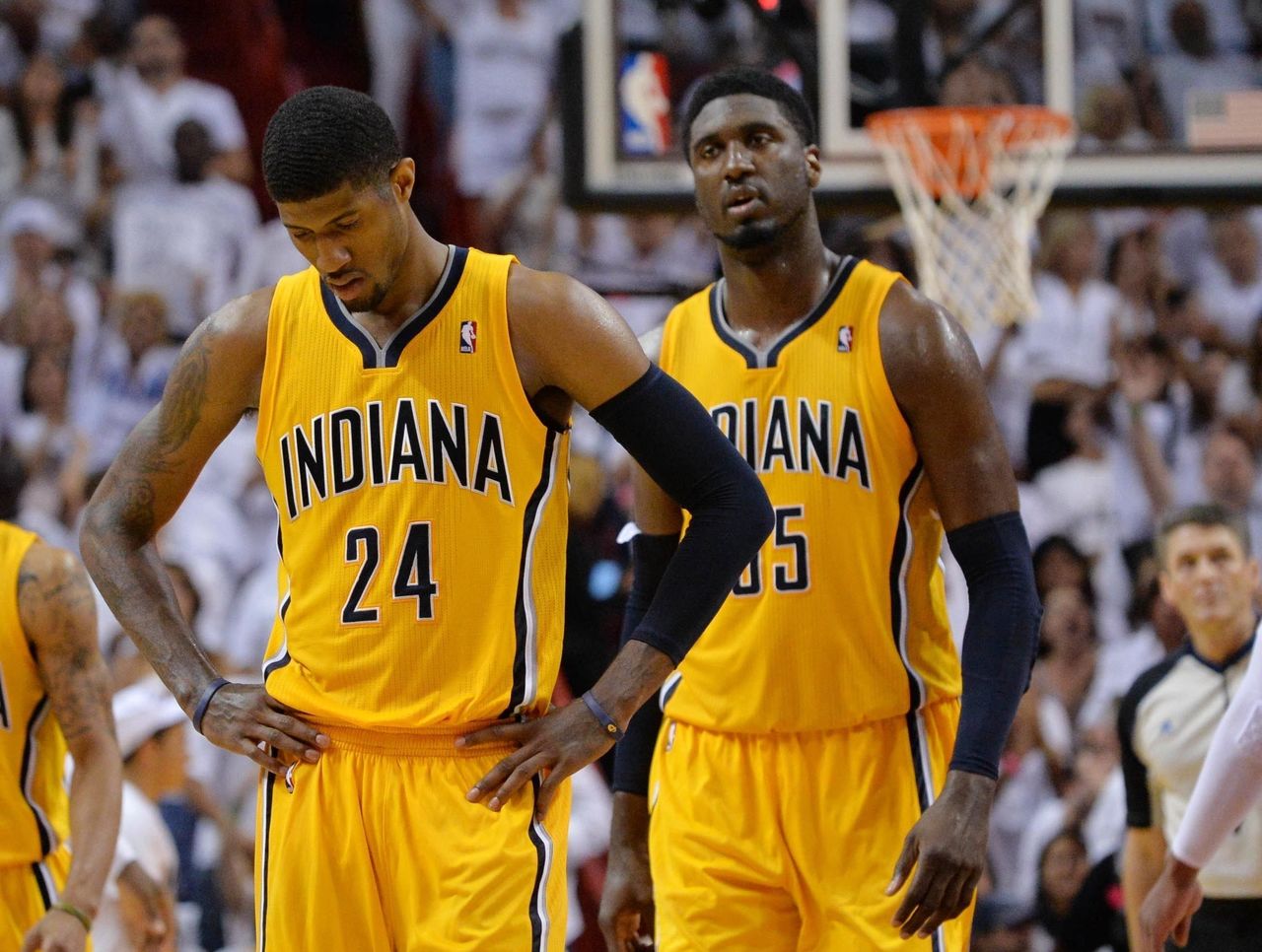3 teams whose offseason gambles didn't pay off
Tap here to access our NBA Tracker, which includes offseason rumors, trades and signings.
You don't luck into a championship. Most teams that want to hang a banner try to do so by taking calculated risks, timing their moves just right and pouncing when opportunity presents itself.
Those gambles, however, don't always turn out for the best.
You've gotta risk it to get the biscuit, but for these three teams, their best laid offseason schemes went awry.

Houston Rockets
The gamble: The Rockets made Chandler Parsons a free agent a year earlier than they had to (though this may have been a concession from Parsons luring Dwight Howard to Houston) in order to retain the right to match any offer sheets, then traded Omer Asik to New Orleans and paid the Los Angeles Lakers to take Jeremy Lin.
The endgame: Lure Chris Bosh to Houston as the team's third superstar using the now-robust cap space, then take care of Parsons.
The result: Bosh re-signed with Miami, the Dallas Mavericks signed Parsons to a huge offer sheet that the Rockets declined to match, and free agency bore no other elite fruit.
The contingency: In not matching on Parsons, the Rockets opted to maintain flexibility moving forward rather than get locked in to a sizeable and largely untradeable deal for Parsons, who they have deemed is not the "third star" they feel they need. Instead, the team has signed Trevor Ariza to an affordable deal and added several minor, minimum-contract pieces at the periphery.
The moving pieces: Parsons, Asik, Lin, and a first-round pick out; Ariza and a first-round pick in.
The fallout: The Rockets missed out on Bosh, lost Parsons and thinned out their depth, which probably means they're in a worse place than they were last season, when the Portland Trail Blazers knocked them out in the first round of the playoffs. For Houston, though, the important factor is the cap flexibility going forward, with general manager Daryl Morey on record as wanting a third pillar next to Howard and James Harden.
In the summer of 2015, the Rockets could have as little as $47.3-million in salary committed, per Sham Sports, with the cap expected to rise to $66.5- million. They may miss out on a star again, but at least the possibility remains, and that's what matters to a "flags fly forever" management team.

Miami Heat
The gamble: Dwyane Wade, Chris Bosh and Udonis Haslem all opted out of significant contracts for 2014-15 to help create flexibility to add additional pieces to a core that made four consecutive NBA Finals and won two championships in that span. That included signing Josh McRoberts and Danny Granger and drafting Shabazz Napier.
The endgame: Convince LeBron James to keep his talents in South Beach.
The result: James went home to the Cleveland Cavaliers, leaving the Heat without their superstar and with pieces in hand that were meant to appease him.
The contingency: The Heat have decided to just keep on trucking, inking Luol Deng to fill in for as much of James as he can, and going ahead with new deals for Wade, Bosh, Haslem, Chris Andersen, Mario Chalmers and more. They spent $215-million in total and have managed to maintain some flexibility moving forward.
The moving pieces: James out, Deng, Napier, McRoberts and Granger in.
The fallout: James left, and that makes everything hurt a great deal. Wade will now make about $10-million less than he would have, McRoberts and Granger aren't playing with the best player in the world like they thought, and depending on how you feel about Napier, the team burned their first-round pick to curry favor.
Still, in the Eastern Conference this isn't a bad team. Bosh is a top-20 player, Erik Spoelstra is a terrific coach, and if Deng can rediscover his 3-point touch, this could still be a decent two-way team. They're not contenders, but this isn't post-James Cleveland, either.

Indiana Pacers
The gamble: The Pacers held firm with a five-year, $44-million offer to unrestricted free agent Lance Stephenson, knowing that even a deal with that kind of starting salary would require them to make significant moves to stay beneath the luxury tax. With a relatively quiet market, they bet that salary would be enough to retain Born Ready.
This came, by the way, a year after the Pacers picked up their fourth-year team option on Stephenson rather than letting him become a restricted free agent, the opposite of what the Rockets did with Parsons this year.
The endgame: Get Stephenson at a price that was perhaps below market value thanks to his reputation issues, maintaining long-term flexibility on the books.
The result: Stephenson opted for a higher annual salary, a shorter deal and a change of scenery, signing a three-year, $27-million pact with the Charlotte Hornets.
The contingency: The Pacers didn't really opt to replace Stephenson but instead try to shore up the depth on a team that relied almost exclusively on its starters in recent seasons. C.J. Miles at four years and $18-million seems the on-paper "replacement," but the team also set aside money for Rodney Stuckey and Damjan Rudez.
The moving pieces: Stephenson out, Miles, Stuckey and Rudez in.
The fallout: While Stephenson can be mercurial, the price was right for a player of his talents, and the team stands to feel his absence a great deal. Already an unimaginative and oft-stagnant offense, the Pacers have now lost one of their top players in terms of touches and passes per game and easily their most effective player driving to the hoop, shifting a great deal of burden onto Paul George at the offensive end.
Factor in that Stephenson is also a disruptive defender and that he's being replaced by two quarters trying to make a 50-cent piece, and the outlook for a Pacers team that fell apart late looks tenuous for this season.